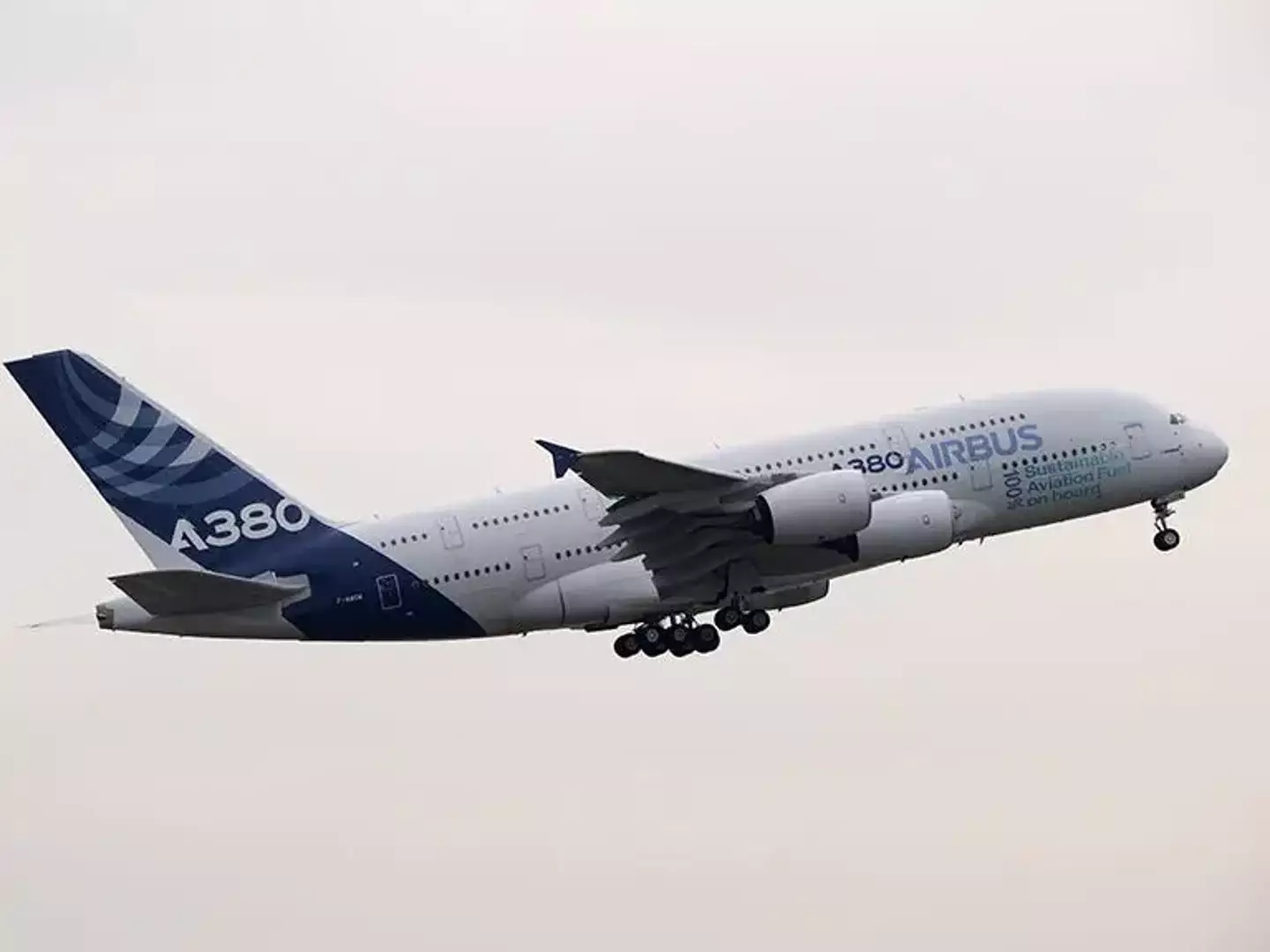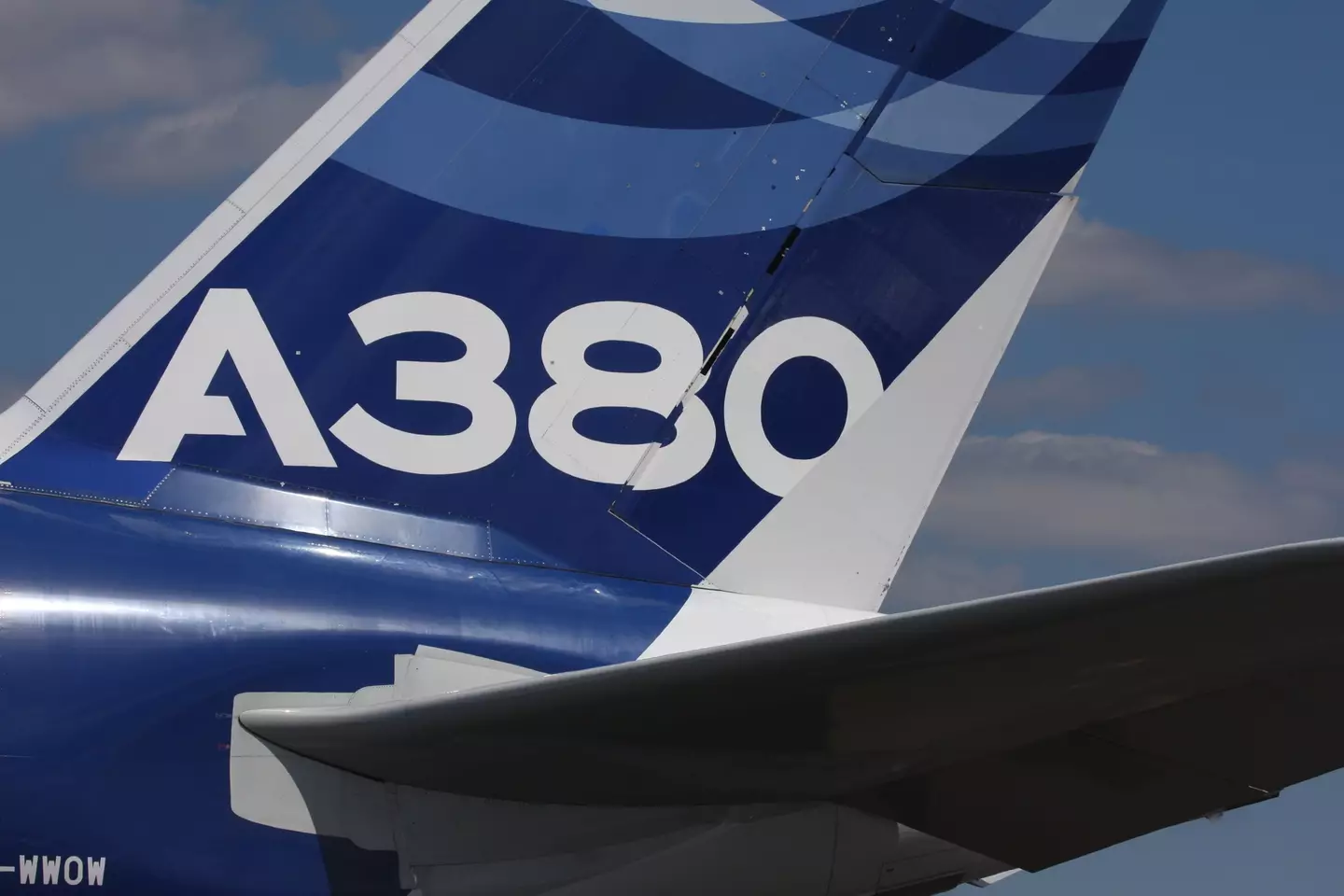
Aircraft manufacturer Airbus has completed the first-ever A380 jumbo jet flight using 100% biofuel, which includes cooking oil and other waste fats.
A series of successful maiden flights using sustainable oils has fuelled hopes that the aviation company can introduce the world's first zero-emission aircraft by 2035.
While that remains a long way off, last Friday's flight does represent a huge step forward for the industry as a whole. The flight saw Airbus's first-ever A380 – known as MSN 1 – take off from Blagnan Airport in Toulouse, France, stay in the air for three hours and then return back to the airfield.

Advert
As per Business Insider, during this test flight, one of the Rolls-Royce Trent 900 engines was powered using 100% sustainable fuels.
The fuel in question comes from French oil and gas company TotalEnergriesm, which claims all of the 27 tonnes of fuel used was made from hydro-process esters and fatty acids, which are naturally 'free of aromatics and sulphur'.
"The flight test met all of our requirements, which will enable us to carry out the next phase of the project consisting of specific engine manoeuvers," Airbus test pilot, Wolfgang Absmeier, told Business Insider.
While not the first Airbus flight to be launched using 100% SAF (Sustainable Aviation Fuel), the sheer size of an A380 does represent something of a landmark achievement.
It follows maiden voyages last March involving an Airbus A350, before the A319neo completed a similar test flight in October.

"Increasing the use of SAF remains a key pathway to achieving the industry's ambition of net-zero carbon emissions by 2050," said Airbus in a statement. The company claims that flying planes on SAF could net between 53% to 71% of the carbon reductions required to meet that lofty goal.
SAF is already being utilised by several airlines in small quantities. However, its high price does mean that widespread adoption of the more environmentally-friendly fuel won't happen anytime soon.
If Airbus can complete the transition over the next decade, it may give a new lease of life to the A380, which is being phased out globally due to its excessive fuel consumption.
The last-ever A380 was delivered to Emirates at the end of last year, in what was the biggest sign yet that the jumbo jet's days may be numbered.
If you have a story you want to tell, send it to UNILAD via [email protected]
Topics: Travel, Technology, Science
